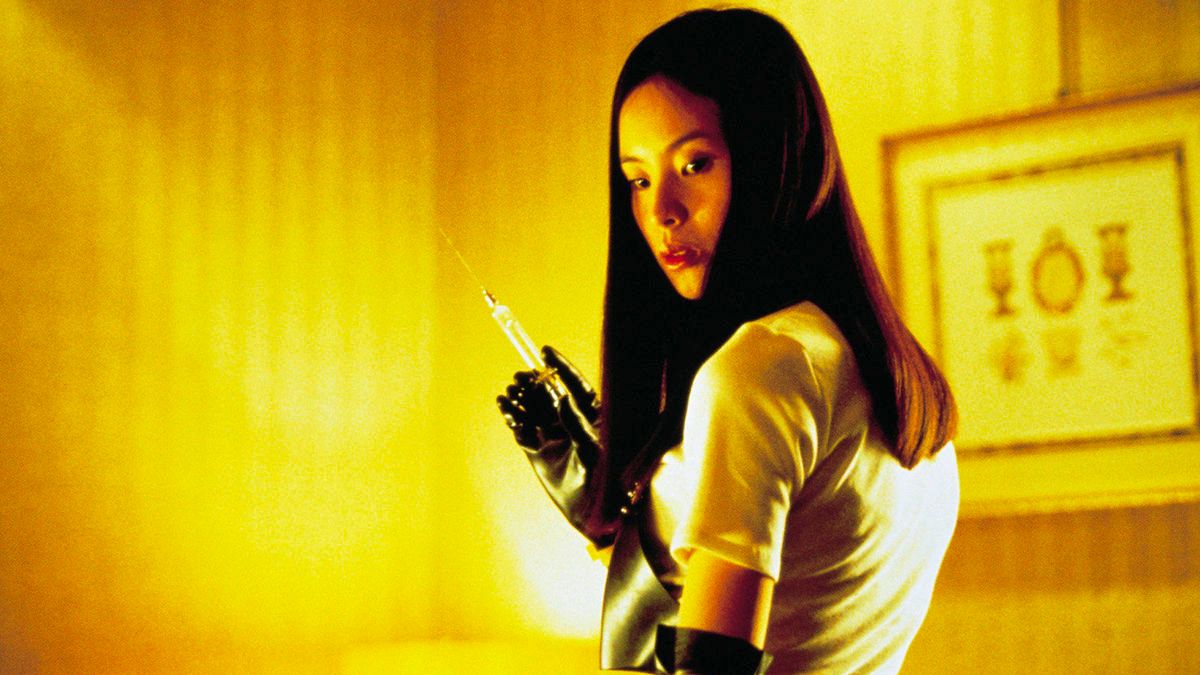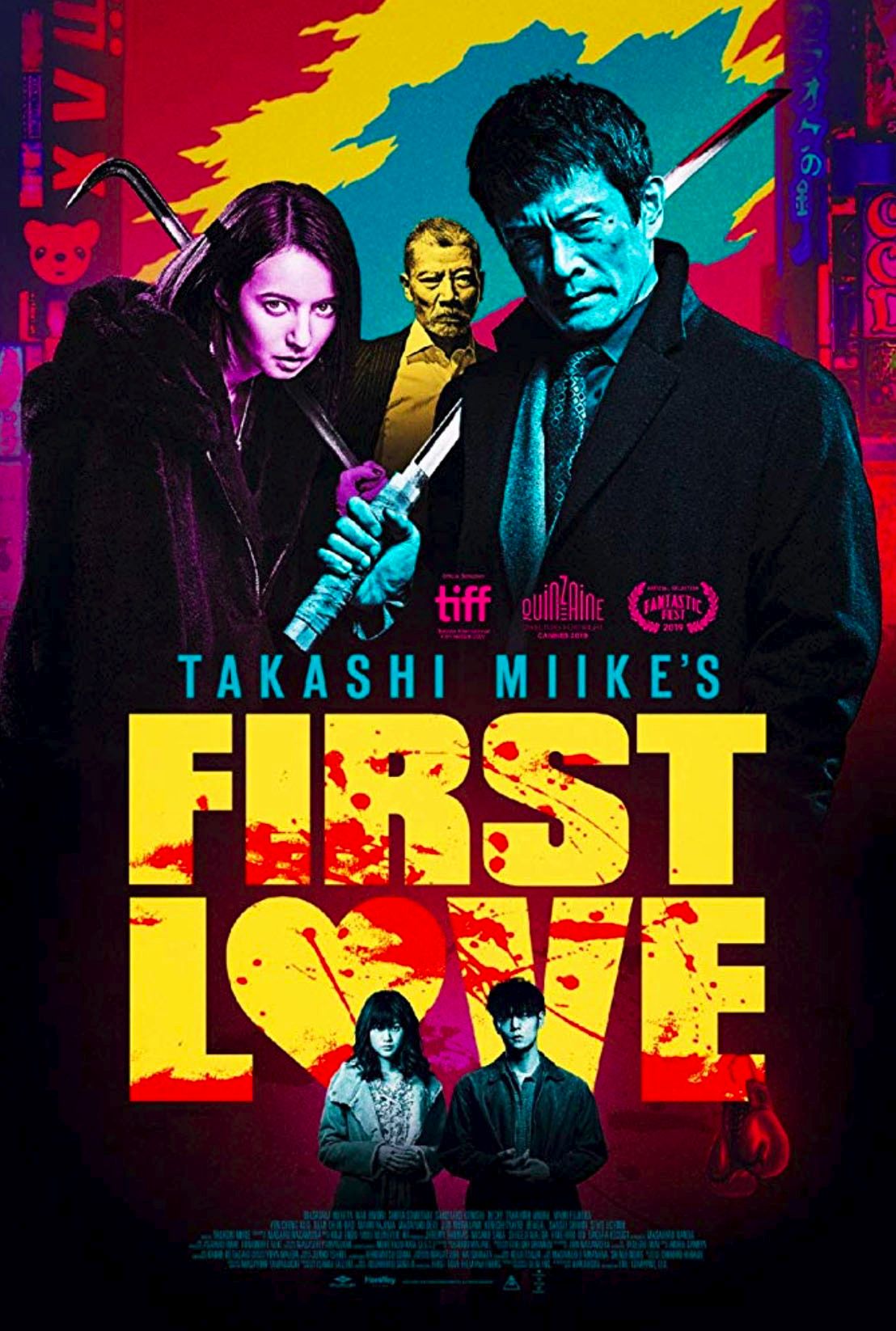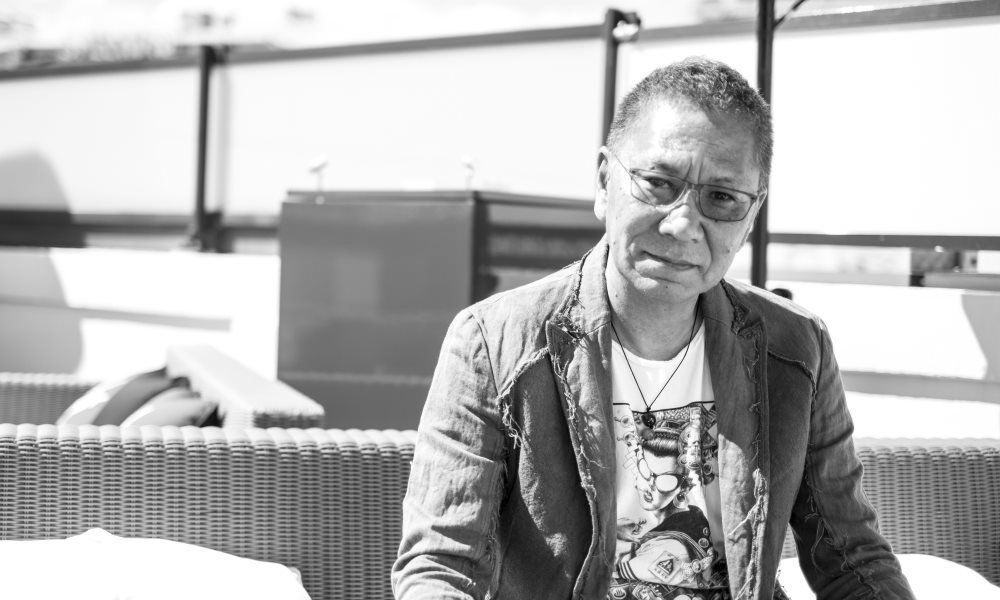"Confrontation is Takashi Miike's default mode. Slick with all manner of bodily secretions, his films share a raison d'être in the remotest extremes of physical dismemberment, sadomasochism, volcanic psychopathology and the dark art of the sick joke. Even his warp-speed work ethic is in your face - the grind-house savant averages four to seven celluloid disturbances per year." - Jessica Winter (The Rough Guide to Film, 2007)
Takashi Miike
Director / Screenwriter
(1960- ) Born August 24, Yao, Japan
(1960- ) Born August 24, Yao, Japan
Key Production Countries: Japan, UK
Key Genres: Crime, Action, Thriller, Crime Drama, Horror, Crime Thriller, Action Thriller, Drama, Gangster Film, Horror Comedy, Fantasy, Samurai Film
Key Collaborators: Yasushi Shimamura (Editor), Koji Endo (Composer), Hideo Yamamoto (Cinematographer), Renji Ishibashi (Leading Character Actor), Kenichi Endo (Character Actor), Sho Aikawa (Leading Actor), Masa Nakamura (Screenwriter), Akira Ishige (Production Designer), Ren Osugi (Character Actor), Ichiro Ryu (Screenwriter), Makoto Okada (Producer), Kazunari Tanaka (Cinematographer)
Key Genres: Crime, Action, Thriller, Crime Drama, Horror, Crime Thriller, Action Thriller, Drama, Gangster Film, Horror Comedy, Fantasy, Samurai Film
Key Collaborators: Yasushi Shimamura (Editor), Koji Endo (Composer), Hideo Yamamoto (Cinematographer), Renji Ishibashi (Leading Character Actor), Kenichi Endo (Character Actor), Sho Aikawa (Leading Actor), Masa Nakamura (Screenwriter), Akira Ishige (Production Designer), Ren Osugi (Character Actor), Ichiro Ryu (Screenwriter), Makoto Okada (Producer), Kazunari Tanaka (Cinematographer)
"A prolific director of offbeat, often controversial genre movies, Miike came to international notice with his most harrowing film, Audition (1999)… Miike's work as a whole is notable for extreme violence, but this has more often been presented in a deliberately theatrical, stylized fashion which owes something to the techniques of manga.. His films are inevitably inventive, but he would seem overall to be more interested in provoking his viewers than in enlightening them." - Alexander Jacoby (A Critical Handbook of Japanese Film Directors, 2008)
"Impressively prolific Takashi Miike is not so much a director as an industry unto himself; his nonstop products range erratically but proudly and energetically from artful dramas to surreal dark comedies, to gut-churning horror and explosive action. No genre earns his particular allegiance, and no film reveals any limitations to Miike's ambitions. Of course, Miike's ambitions are often as muddy as his aesthetics, but it is ultimately hard to go wrong with an anything-goes mentality." - Joshua Klein (501 Movie Directors, 2007)

Audition (1999)
"During his 26 years as a film, television, documentary, stage play and music video director, Takashi Miike has led the kind of career that rivals that of much more veteran filmmakers. He matured from the shot-for-video domestic market to the international film festival circuit, and finally became a major studio hitmaker with his personal choice of the top productions in Japan. His prolific and rapid success is unmatched by any other Japanese filmmaker of his generation, and while a major international co-production still eludes him, Miike is one of the top craftsmen in his own country: His films still play regularly overseas at festivals or via foreign distribution contracts. His filmography is so lengthy, in fact, and so full of television work and other side projects that one could be forgiven for being mistaken about the exact number of films the director has actually completed." - Marc Walkow (IndieWire, 2017)
"Those who have never seen a Takashi Miike movie will likely be in shock when they gaze upon his works for the first time. A truly audacious film director from Japan, the land of general cinematic excellence, Miike is a prolific artist who has consistently pushed the boundaries of his medium in a wide range of genres. It can be hard to pin down Miike’s general mood or aesthetic as his films vary so much in their approach to cinema. For instance, a number of his films are brimming with both violence and a sense of the surreal, including his 1999 horror movie Audition and his 2001 yakuza flick Ichi the Killer." - Thomas Leatham (Far Out Magazine, 2024)
"Miike has produced accomplished work in a surprising variety of genres, including ones outside of the ultraviolent shockers – such as Ichi the Killer, Dead or Alive and Audition – that got picked up in the west. Not many people are aware of Miike the chronicler of Osakan working-class life in Young Thugs: Nostalgia, or Miike the family entertainer (Ninja Kids!!!). Not being precious has gifted him this consistency. It’s almost an alien idea in a time dominated by the overthought film-making-by-committee of the blockbuster industry, or in which we venerate scarcity merchants such as Kubrick and Tarantino (who says he’ll tap out after 10 films). There’s a lot to be said for getting on with it, like Miike. It breeds the kind of mother-of-necessity invention Werner Herzog (around 50 full-length films) has made his watchword." - Phil Hoad (The Guardian, 2017)
"His works often defy convention, employing unique cinematography, bold color choices, and unexpected shifts in tone. This visual flair, combined with his willingness to challenge traditional narrative structures, makes his films both striking and memorable. 13 Assassins, for instance, starts as a slow-burn samurai drama but culminates in a frenetic, large-scale battle sequence that lasts nearly an hour. In Happiness of the Katakuris, Miike surprises audiences with a bizarre mix of claymation sequences, horror, and musical numbers, defying any single genre classification." - Bronze Screen Dream
"Born to working-class Korean immigrants just outside of Osaka, Miike’s father was a welder and his mother a seamstress, which might account for his workman-like approach. After graduating from film school, under the guidance of two-time Cannes-winning director Shohei Imamura, he began working as an assistant director – firstly on Imamura’s 1987 movie Zegen. Four years later, he began directing straight-to-video fare, before making his theatrical debut with 1995’s The Third Gangster." - James Mottram (The Independent, 2017)
"As much a force of nature as he is a film-maker, Takashi Miike is Japan’s greatest living director. Fearless and adept, he is able to bounce effortlessly between multiple styles and genres with ease. A combination of raw talent and a seemingly insatiable need to create means that he boasts a CV with more bulk than a telephone directory." - James Gates (The Culture Trip, 2017)
"My influences happen at more of a subconscious level, I don’t dig too deep into that or analyze it myself. I may say, “That scene in that movie would be perfect for this thing.” I’ll talk to my staff and say, “Oh you have to check out this film, it had this one scene that was really great!” In that sense I’m very straight forward about what my influences are. But more than being influenced by film in a tangible way that filters into my own work, I’m more influenced by things that happen in my daily life." - Takashi Miike (Roger Ebert.com, 2019)
Selected Filmography
{{row.titlelong}}
Takashi Miike / Favourite Films
The Cassandra Crossing (1977) George P. Cosmatos, City Lights (1931) Charles Chaplin, Enter the Dragon (1973) Robert Clouse, God's Puzzle (2008) Takashi Miike, Pigs and Battleships (1961) Shohei Imamura, Sea Monkey (2004) Eiichiro Hasumi, Starship Troopers (1997) Paul Verhoeven, Sukiyaki Western Django (2007) Takashi Miike, The Texas Chainsaw Massacre (1974) Tobe Hooper, Transporter 3 (2008) Olivier Megaton, Vanishing Point (1971) Richard C. Sarafian.
Source: Yosensha (2008)
The Cassandra Crossing (1977) George P. Cosmatos, City Lights (1931) Charles Chaplin, Enter the Dragon (1973) Robert Clouse, God's Puzzle (2008) Takashi Miike, Pigs and Battleships (1961) Shohei Imamura, Sea Monkey (2004) Eiichiro Hasumi, Starship Troopers (1997) Paul Verhoeven, Sukiyaki Western Django (2007) Takashi Miike, The Texas Chainsaw Massacre (1974) Tobe Hooper, Transporter 3 (2008) Olivier Megaton, Vanishing Point (1971) Richard C. Sarafian.
Source: Yosensha (2008)
Takashi Miike / Fan Club
Kim Morgan, Jasper Sharp, David Jenkins, James Gunn, Mike D'Angelo, Nigel Floyd, Quentin Tarantino, Fernando E. Juan Lima, Willow Catelyn Maclay, Mehmet Açar, Anton Bitel, Gavin Smith.
Kim Morgan, Jasper Sharp, David Jenkins, James Gunn, Mike D'Angelo, Nigel Floyd, Quentin Tarantino, Fernando E. Juan Lima, Willow Catelyn Maclay, Mehmet Açar, Anton Bitel, Gavin Smith.
"Fan Club"
These film critics/filmmakers have, on multiple occasions, selected this director’s work within film ballots/lists that they have submitted.
These film critics/filmmakers have, on multiple occasions, selected this director’s work within film ballots/lists that they have submitted.


